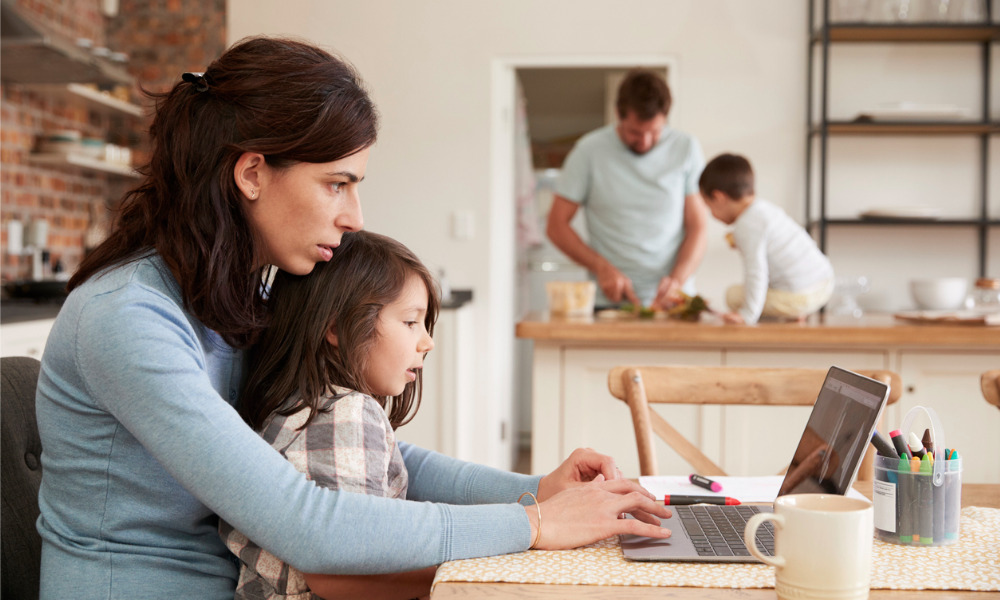
Extended school closures pose yet another hurdle for remote-working parents – and companies could pay the price of this 'productivity slump'

Technology companies are expanding their paid parental/family leave benefits in a bid to support employees forced to juggle work and family care duties in the wake of the COVID-19 pandemic.
Microsoft is adding 12 more weeks of paid leave, while Google is offering 14 additional weeks.
Extended school closures, alongside the decision of most companies to operate remotely, have disrupted the normal routine of households caring for young children.
Some 1.6 billion school children and young adults worldwide are said to have been affected by the closures in more than 180 countries, according to figures from UNESCO.
READ MORE: Microsoft asks employees to work from home
In Washington state – home to Microsoft’s headquarters – officials earlier this month announced plans to shutter schools for the remainder of the academic year.
Greater flexibility
Microsoft’s ‘paid pandemic school and childcare closure leave’ aims to give working parents “greater flexibility and time off as they face extended school closures,” a representative told CNN.
Employees can go on leave for a number of days per week or for a three-month period in full.
Similarly, Google employees can go on leave without any deductions from their standard paid leave allowance. Those on a half-day work schedule, meanwhile, can make use of their leave credits for up to 28 weeks, CNET reported.
But the benefit is open only to Google’s full-time staff. Contractors – who constitute about 50% of the workforce – will need to coordinate their leave with their respective employers, Google said.
Working in a noisy environment?
Companies that cannot afford to offer extended paid leave for working parents could suffer the consequences, however. Stanford economist Nicholas Bloom points out the current work-from-home movement will likely result in what he calls a “productivity slump”.
READ MORE: Kids on a conference call? Tips for parents working from home
“Working from home with your children is a productivity disaster,” he told Stanford News. “Many people I have been interviewing are now working in their bedrooms or shared common rooms, with noise from their partners, family or roommates.”
Face-to-face interaction is crucial to innovation, Bloom said, but companies are now facing limited options for collaborating in person.
“The new ideas we are losing today could show up as fewer new products in 2021 and beyond, lowering long-run growth,” he forecast.